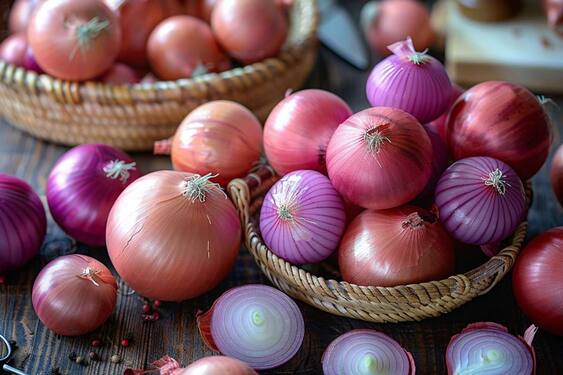10 Consequences Of Eating Too Many Onions
While onions offer many health benefits and are a flavorful addition to many dishes, moderation is key to avoiding potential drawbacks. If you experience any adverse effects from consuming onions, such as digestive discomfort or bad breath, consider reducing your intake and observing how your body responds. For individuals with specific health concerns or conditions, it's a good idea to consult with a healthcare provider to ensure that your diet is balanced and supportive of your overall health.

Onions are a staple in many diets around the world due to their flavor, nutritional benefits, and versatility. However, consuming them in excessive amounts can have some disadvantages and side effects. Here's a detailed look at potential drawbacks of eating too many onions:
1. Digestive Issues
Gas and Bloating: Onions contain fructans, a type of carbohydrate that can cause gas and bloating when consumed in large quantities. Fructans are fermented by bacteria in the large intestine, leading to the production of gas.
Heartburn and Acid Reflux: Onions, especially when raw, can trigger or exacerbate symptoms of heartburn and acid reflux in some individuals. This is because onions can relax the lower esophageal sphincter, allowing stomach acid to flow back into the esophagus.
2. Bad Breath
Odor: Onions contain sulfur compounds that can contribute to bad breath. These compounds are absorbed into the bloodstream and exhaled through the lungs, leading to an unpleasant odor.
Lingering Smell: The smell of onions can also linger on the breath and skin, which might be socially inconvenient.
3. Allergic Reactions
Symptoms: Some people may be allergic to onions, experiencing symptoms such as itching, swelling, or rashes upon consumption. In severe cases, an allergic reaction might lead to more serious conditions like anaphylaxis.
4. Blood Thinning
Interaction with Medications: Onions contain compounds that have natural blood-thinning properties. While this can be beneficial for cardiovascular health, it might interfere with blood-thinning medications such as warfarin or aspirin, potentially increasing the risk of bleeding.
Excessive Consumption: If consumed in large amounts, the blood-thinning effects of onions could exacerbate the effects of these medications, leading to an increased risk of bleeding or bruising.
5. Gastrointestinal Irritation
Raw Onions: Eating raw onions can irritate the gastrointestinal tract in some individuals, leading to discomfort or nausea. Cooking onions generally reduces their potential to cause irritation.
6. Potential Impact on Blood Sugar Levels
Carbohydrate Content: Onions contain carbohydrates that can impact blood sugar levels. While they have a low glycemic index, consuming them in very large quantities might still affect glucose levels, particularly in people with diabetes.
7. Impact on Breath Freshness
Social Concerns: Due to their strong flavor and odor, onions can affect social interactions. This might be a concern for those who need to maintain fresh breath or are sensitive to strong odors.
8. Risk of Developing Certain Conditions
High-Sulfide Diet: A diet high in sulfur-containing foods like onions can sometimes cause a buildup of sulfur compounds in the body, potentially leading to conditions like sulfite sensitivity in some individuals.
9. Possible Interaction with Certain Medications
Drug Interactions: Onions may interact with certain medications or supplements. For instance, their natural anticoagulant properties could enhance the effects of anticoagulant medications or supplements.
10. Overconsumption and Nutrient Imbalance
Varied Diet: Eating too many onions at the expense of other vegetables and foods can lead to an imbalanced diet, missing out on the variety of nutrients offered by a diverse range of foods.
